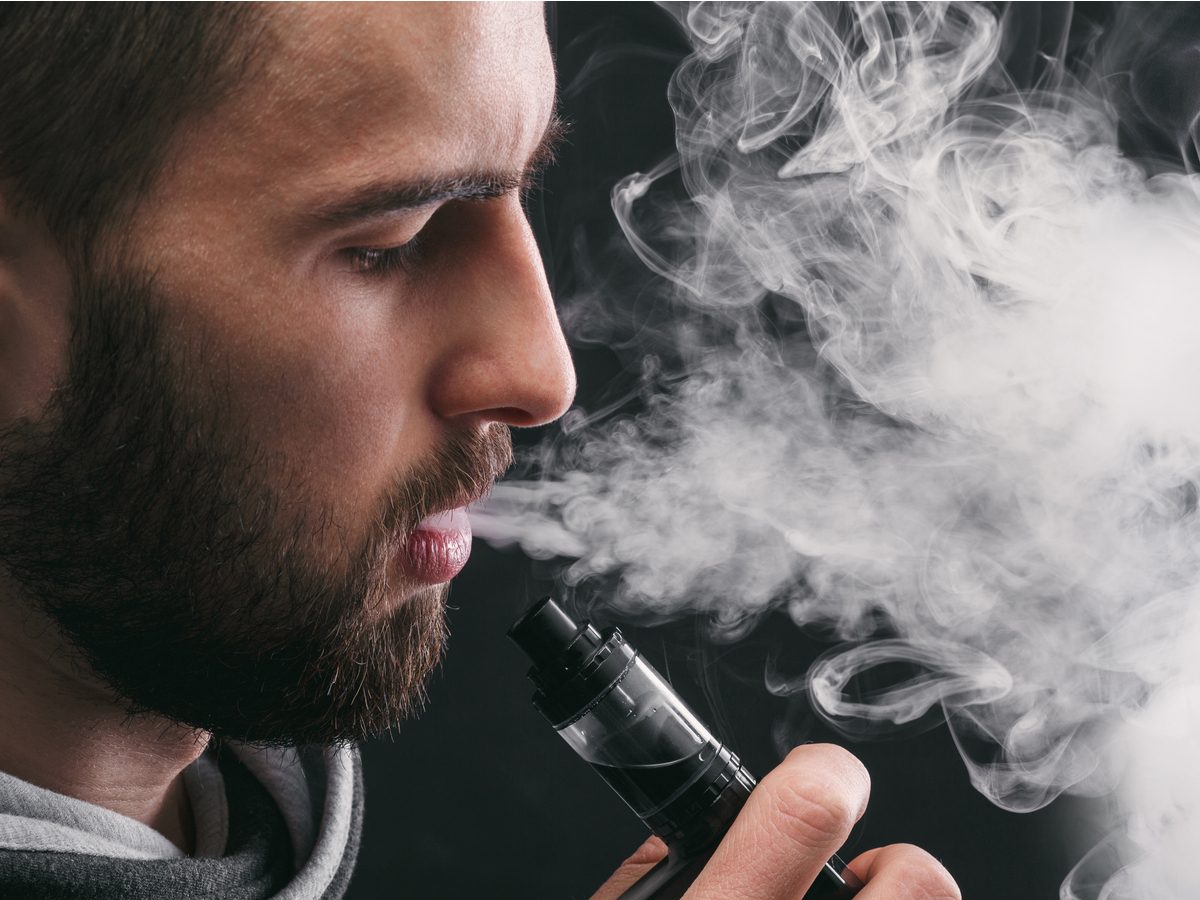9 Proven Ways to Quit Vaping
You've heard the news—vaping is causing deadly lung diseases in e-cigarette users. If you're ready to quit, these strategies will help.

How to quit vaping
The dangers of vaping are becoming more clear to medical experts and the general public. Inhaling the vapor from electronic cigarettes brings toxic chemicals into the lungs and has caused more than 2,000 cases of lung injuries (called “vape lung”) and 39 deaths in the United States alone. In September 2019, a London, Ont., teen was put on life support as a result of a suspected vaping-related illness—the first known case of its kind in Canada.
This is why the Centers for Disease Control and Prevention (CDC) is warning people not to use vaping products—especially those from black-market sources and those containing THC, the compound in cannabis that experts believe may play a role in the outbreak—while they’re investigating the cause of the illnesses and deaths.
But if you vape, how can you quit—especially given how addictive the inhaled substances are? We’ve pored over research and spoke to experts to pinpoint proven ways to stop.
Don’t return to cigarettes
Step one from the CDC is to avoid taking up cigarettes again (if a nicotine addiction was the reason you started vaping). “There are other delivery devices for nicotine that are very successful and have been used for many years,” says Robert Goldberg, MD, pulmonologist at Mission Community Hospital in Mission Viejo, California.
Explore nicotine replacement options
These include the patch, gum, lozenges, and nasal spray. “They’re available over the counter and regulated by the FDA,” Dr. Goldberg says. These can help you manage withdrawal symptoms while trying to quit e-cigarettes. A doctor can help you choose a method, decide how much to take at first, and how to cut back over time.
Talk to your doctor about medication
“Wellbutrin reduces the urge toward smoking and nicotine addiction,” says Dr. Goldberg. “It’s an antidepressant but has this secondary effect on the pathways in the brain.” Another drug, Chantix, can also be used for smoking cessation. “Use these only in conjunction with a physician,” Dr. Goldberg advises.
Announce you’re quitting
Once you’ve discussed nicotine replacement and medication with a physician, tell everyone you know that you’re quitting—especially your friends who vape, advises Tina Kaufman, PhD, assistant professor of medicine who supervises the cardiac rehab program at Oregon Health and Science University. “I tell patients not to hang around them while they’re trying to quit. It’s like asking an alcoholic to hang out in a bar while they’re trying to quit drinking.”
Set a quit date
Pick a date for quitting, Kaufman recommends. Then, the night before, clean out your home, purse, backpack, pockets, and car of vaping paraphernalia. Vape one last time and throw that device away too. Find out what can happen to your body when you stop vaping.
Sign up for text messages
A report in Nicotine and Tobacco Research found that a free quit-vaping program called This Is Quitting has helped thousands of teens and young adults reduce their e-cigarette use or stop altogether. After users enroll anonymously via text, the program encourages them to explore reasons for quitting and envision life after stopping e-cigarette use. It recommends specific, concrete actions and urges users to experiment with quitting strategies in small steps. About 170 new users enroll each day.
Distract yourself
Nicotine cravings will hit—so you want to be ready for them. “They last for about 10 minutes, so if you can distract your mind for that length of time you’ll get through it,” says Kaufman. Some quit-smoking apps offer games you can play that last that long. Taking a 10-minute walk can also work—and comes with another benefit: “The time between cravings lengthens and the strength of the craving decreases when you exercise,” Kaufman says.
Find other stress relievers
Many people vape because they’re stressed out. But that’s a short-term solution. Quitting vaping gives you an opportunity to develop other ways of coping. Experts at the Mayo Clinic, the American Institute of Stress, and elsewhere recommend exercising, deep breathing, meditating, journaling, or talking to a friend. You may also want to ask your doctor about acupuncture and hypnosis. Although they haven’t been studied on vaping, there is some evidence that they can help you quit cigarettes. Learn how to spot the silent signs of stress.
Talk to a counsellor
Considering quitting smoking? The Government of Canada offers a variety of free, personalized support from experts. Click on your province or territory and speak with trained specialists can provide counselling, help develop a quit smoking plan, answer questions and provide referrals to programs and services in your community.
Need more advice and inspiration? Check out more ways to quit smoking.



